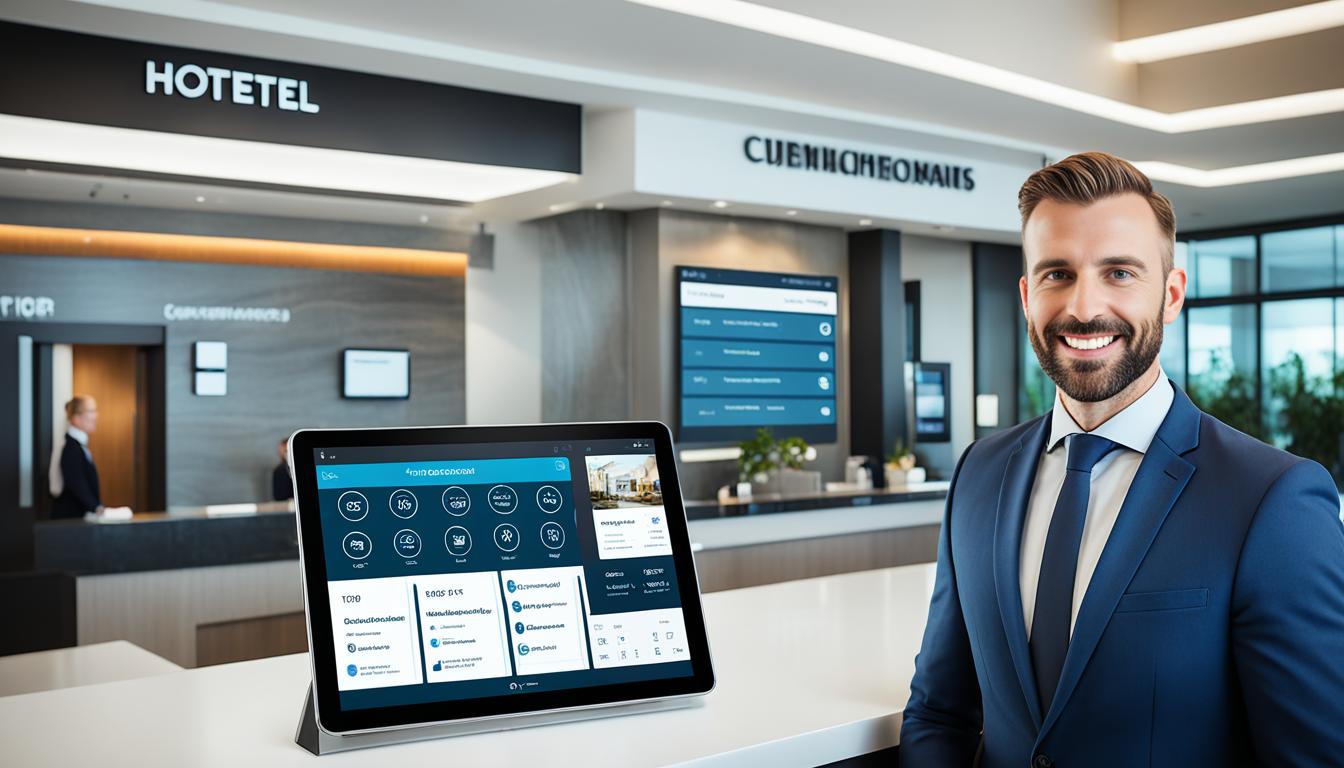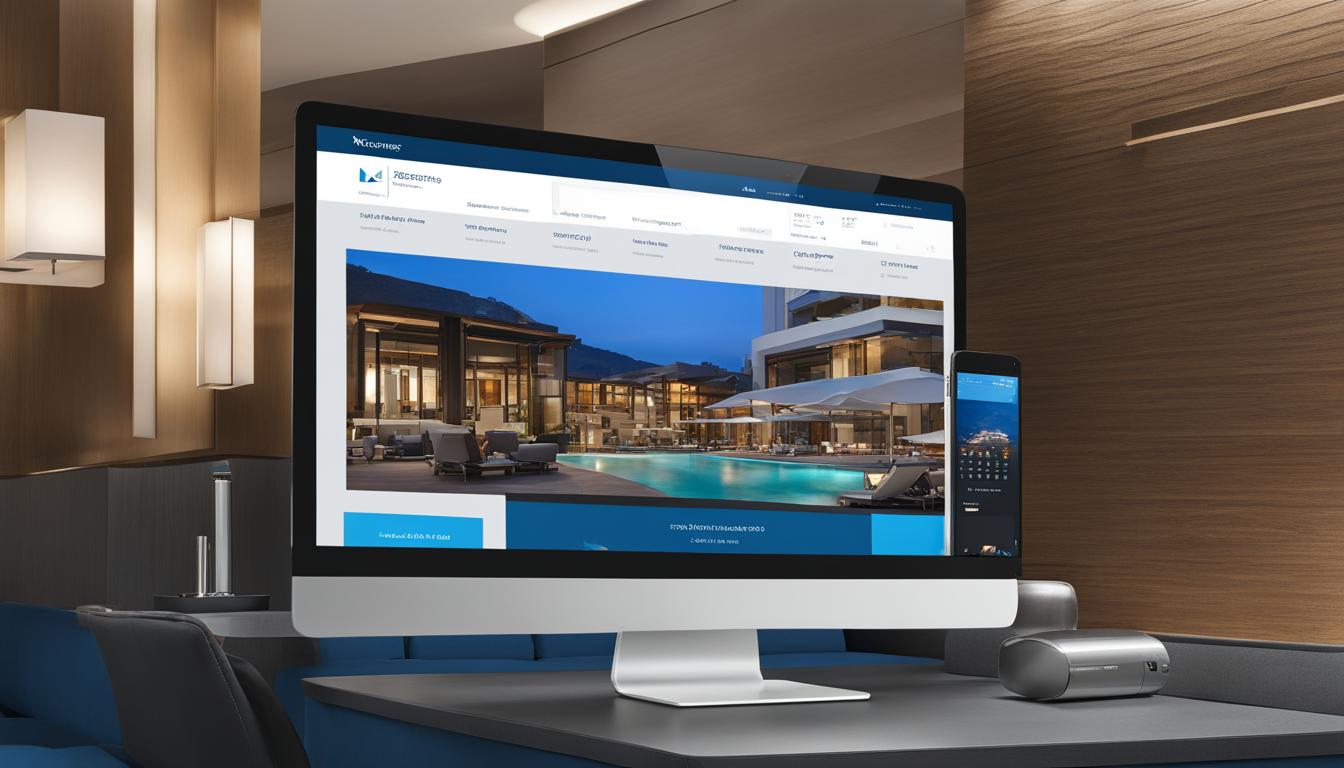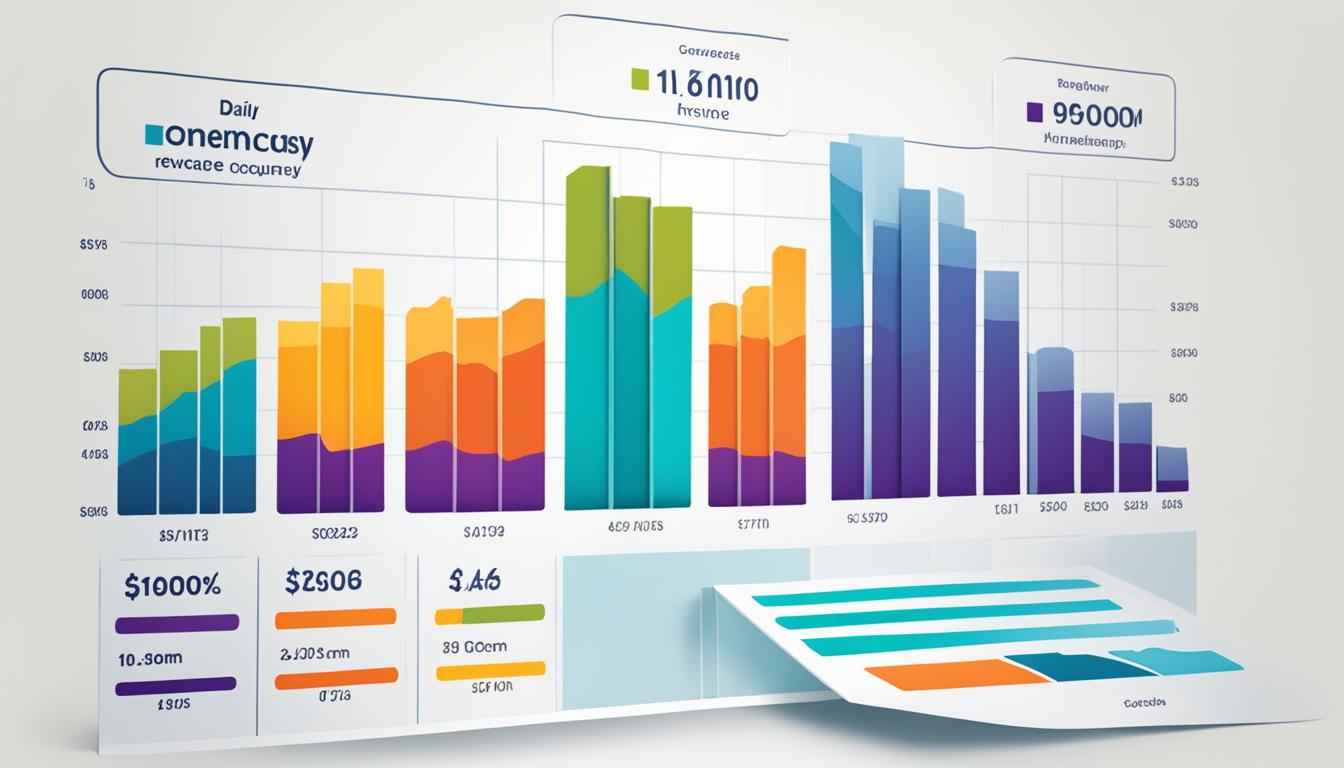Hotel revenue management is a crucial aspect of maximizing profitability in the hospitality industry. It involves implementing effective strategies to optimize pricing and inventory, ultimately driving higher revenue. However, one key factor that significantly influences revenue management is seasonality.
Seasonality refers to the fluctuation in demand for hotel rooms throughout different periods of the year. Understanding the impact of seasonality on hotel revenue is essential for hoteliers to develop successful revenue management strategies and maintain profitability.
During high-demand seasons, such as holidays or peak travel periods, hotels have the opportunity to generate significant revenue. On the other hand, off-peak seasons pose challenges as demand decreases, making it crucial for hoteliers to implement strategies to overcome these challenges and optimize revenue.
In this article, we will explore the influence of seasonality on hotel revenue, discuss strategies to maximize revenue during peak seasons, and provide insights on overcoming challenges in off-peak seasons.
By implementing effective revenue management strategies throughout the year, hoteliers can ensure a consistent flow of bookings and profitability. Let’s dive deeper into the world of hotel revenue management and discover how it can drive your hotel’s success.
Understanding Hotel Revenue Management
Hotel revenue management plays a crucial role in the success of any hotel business. By employing effective strategies, hoteliers can optimize their pricing and inventory to drive higher revenue and increase profitability. In this section, we will provide a brief overview of hotel revenue management and shed light on the key strategies utilized within the industry.
Hotel revenue management involves analyzing market data, consumer behavior, and demand patterns to make informed pricing decisions. The goal is to maximize revenue by balancing occupancy levels and average daily rates. By implementing the right strategies, hoteliers can effectively manage room rates, inventory, and distribution channels to improve their financial performance.
One of the primary strategies in hotel revenue management is price optimization. This involves setting dynamic prices that are adjusted based on demand fluctuations, seasonal factors, and market conditions. By leveraging technology and analytics, hoteliers can determine optimal rates for different room types, dates, and customer segments, ensuring they capture the maximum possible revenue.
Another important strategy is inventory management. Hoteliers need to closely monitor and control their room inventory to meet the varying demand levels. They can employ techniques such as overbooking and length-of-stay restrictions to maximize occupancy and minimize the risk of revenue loss.
Additionally, segmentation and targeting play a critical role in revenue management. By identifying different customer segments and understanding their preferences and willingness to pay, hotels can create tailored pricing strategies to attract and retain profitable guests.
By employing these strategies, hotel revenue management helps hoteliers optimize their financial performance throughout the year, regardless of seasonality or market conditions. The data-driven approach allows hotels to make informed decisions, adapt to changing dynamics, and stay competitive in a rapidly evolving industry.
The Influence of Seasonality on Hotel Revenue
Seasonality plays a significant role in the revenue generation of hotels. Understanding how different seasons affect demand patterns is crucial for effective revenue management. By analyzing these trends, hoteliers can make informed decisions to optimize their revenue.
During high-demand seasons, such as holidays or major events, hotels experience a surge in bookings and occupancy rates. This increased demand allows hotels to set higher room rates, resulting in higher revenue. On the other hand, low-demand seasons can pose challenges for hotels, as demand decreases, resulting in lower occupancy rates and potential revenue loss.
Managing hotel revenue during different seasons requires a thoughtful approach. Revenue managers need to carefully analyze historical data and market trends to forecast demand accurately. By understanding peak and off-peak seasons, hotels can strategically adjust their pricing and promotional strategies to attract customers and maximize revenue potential.
For example, hotels located in popular tourist destinations may experience high demand during the summer months, while ski resorts might see a peak season during winter. By capitalizing on these peak seasons, hotels can implement dynamic pricing strategies to optimize revenue.
Conversely, during off-peak seasons, hotels can focus on implementing revenue optimization strategies to attract guests. This may include offering special packages, partnering with local attractions or events, and leveraging online marketing channels to reach potential customers.
Understanding the influence of seasonality on hotel revenue allows revenue managers to make data-driven decisions that align with market demand. By adopting effective revenue management strategies, hotels can enhance their financial performance and ensure long-term profitability.
Maximizing Revenue during Peak Seasons
In order to maximize revenue during peak seasons, it is crucial for hotels to employ effective strategies and leverage the power of a reliable hotel booking engine. A robust booking engine serves as the backbone of revenue maximization by efficiently managing bookings, rates, and availability.
During peak seasons, the demand for hotel accommodations is at its highest. This presents a significant opportunity for hotels to increase their revenue potential. By utilizing a hotel booking engine, hoteliers can streamline the booking process and ensure that rooms are sold at the optimal rates. The booking engine automates the inventory management, allowing hotels to maintain real-time availability and update rates dynamically based on demand.
With a reliable hotel booking engine, hotels can implement revenue management strategies that are tailored to the specific demands of peak seasons. This includes implementing dynamic pricing, where rates are adjusted in real-time based on factors such as occupancy levels and market demand. By accurately pricing their rooms, hotels can maximize revenue by capturing every available opportunity.
In addition to managing rates, a hotel booking engine also enables hotels to optimize their distribution channels. It provides seamless integration with online travel agencies (OTAs) and global distribution systems (GDS), allowing hotels to expand their reach and attract a wider audience during peak seasons. This increased visibility translates into higher bookings and revenue.
By utilizing a hotel booking engine, hotels can streamline their operations, improve efficiency, and maximize revenue during peak seasons. It empowers hotels to effectively manage their inventory, rates, and distribution channels, ensuring that they capitalize on the increased demand and drive profitability.
Overcoming Challenges in Off-Peak Seasons
Off-peak seasons can present unique challenges for hoteliers seeking revenue optimization. With lower demand and reduced occupancy rates, it is essential to implement effective strategies to attract bookings and maximize revenue. One crucial tool that can aid hoteliers in navigating these challenges is a hotel channel manager.
A hotel channel manager is a powerful platform that allows hoteliers to manage their distribution channels efficiently. By integrating with multiple online travel agencies (OTAs), global distribution systems (GDS), and other distribution partners, a hotel channel manager enables hoteliers to diversify their distribution channels and reach a broader audience.
During off-peak seasons, when demand is lower, hoteliers can leverage a hotel channel manager to dynamically manage room rates and availability across different channels. By implementing a revenue management strategy that optimizes rates based on market demand and competitor analysis, hoteliers can ensure they are offering competitive prices without sacrificing profitability.
Furthermore, a hotel channel manager provides valuable insights and reporting capabilities, allowing hoteliers to analyze booking patterns, identify trends, and make data-driven decisions. This data empowers hoteliers to adjust their marketing and promotional efforts to target specific customer segments and attract bookings during off-peak seasons.
In addition to revenue optimization, a hotel channel manager also streamlines operations by automating the distribution process. This automation reduces the risk of double bookings and overbooking errors, ensuring a seamless booking experience for guests.
Hoteliers that proactively utilize a hotel channel manager during off-peak seasons can mitigate the challenges associated with low demand. By diversifying distribution channels, effectively managing rates, and leveraging the analytical insights provided by the hotel channel manager, hoteliers can attract bookings and optimize revenue – even during periods of reduced demand.
Enhancing Direct Bookings with a Hotel Website Builder
In today’s digital age, establishing a strong online presence is essential for hotels to thrive in a highly competitive market. As travelers increasingly turn to the internet to research and book accommodations, it becomes crucial for hoteliers to leverage technology and optimize their direct bookings. One effective tool for achieving this is a hotel website builder.
A hotel website builder is a user-friendly platform that enables hoteliers to create and manage their own websites without the need for extensive coding knowledge. With a hotel website builder, hoteliers can customize their websites to reflect their brand identity, offer a seamless user experience, and attract more direct bookings.
By utilizing a hotel website builder, hotels can optimize their online presence and reduce dependence on third-party booking channels. With direct bookings, hotels can eliminate commission fees typically associated with third-party platforms, allowing them to maximize revenue and increase profitability.
One of the key advantages of a hotel website builder is the ability to create a visually appealing website that captures the attention of potential guests. A clean and visually appealing website, combined with compelling imagery and engaging content, can significantly enhance the user experience and entice visitors to make direct bookings.
Furthermore, a hotel website builder allows hoteliers to easily update their website in real-time, ensuring that room availability, rates, and promotions are always accurate and up-to-date. This real-time functionality enables hotels to provide accurate and transparent information to guests, leading to increased trust and higher direct bookings.
It is important to note that a successful hotel website builder should also be optimized for mobile devices. With the majority of travelers now using mobile devices to search and book hotels, a mobile-responsive website is essential in capturing these potential guests and driving direct bookings.
To illustrate the impact of a hotel website builder, consider the example of Hotel Azure. By utilizing a hotel website builder, Hotel Azure was able to create a sleek and user-friendly website that showcased their stunning property and amenities. This visually appealing website, combined with a seamless booking process, resulted in a significant increase in direct bookings and a stronger online presence.
By enhancing direct bookings through a hotel website builder, hotels can take control of their online presence, reduce costs, and increase profitability. Embracing technology and creating a user-friendly website that captivates potential guests is key to staying ahead in the competitive hospitality industry.
Conclusion
In conclusion, effective revenue management strategies are crucial for hotels to maximize profitability throughout the year. By understanding the impact of seasonality on hotel revenue and implementing the right strategies, hoteliers can optimize pricing and inventory to drive higher revenue.
At PlanetHMS, we offer a comprehensive suite of hotel management software services to help hoteliers achieve revenue maximization. Our hotel booking engine enables seamless management of bookings, rates, and availability during peak seasons, ensuring maximum revenue potential. Meanwhile, our hotel channel manager helps overcome challenges in off-peak seasons by diversifying distribution channels and attracting bookings.
Additonally, leveraging our hotel website builder can enhance direct bookings, reducing dependence on third-party channels. By creating a user-friendly and visually appealing website, hotels can establish a stronger online presence and attract more guests.
For further inquiries about our services, please reach out to our team at [email protected]. Start maximizing your revenue today with PlanetHMS.







